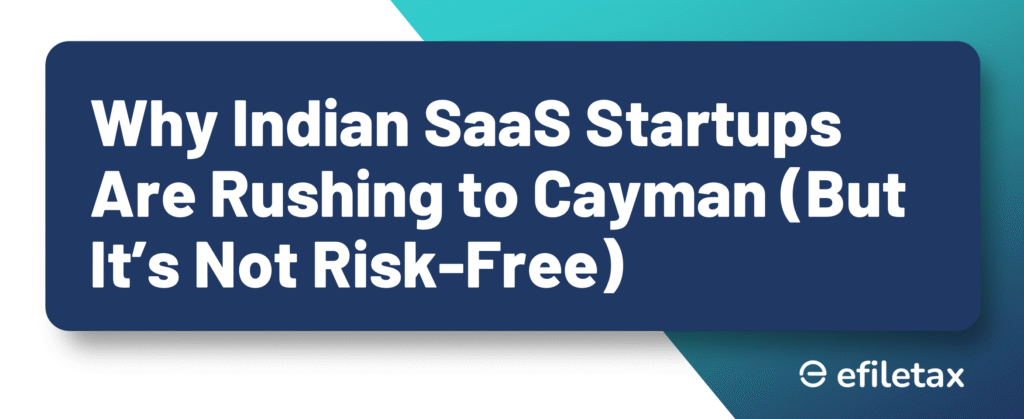
Why Indian Startups Choose Cayman Islands for Incorporation
In recent years, several Indian SaaS startups have opted to register holding entities in the Cayman Islands — a move driven by global ambitions and favourable tax structures. But this strategy comes with both opportunities and regulatory risks.
Let’s break it down.
Key Benefits of Cayman Islands Registration
- Zero Corporate Tax:
The Cayman Islands imposes no corporate, capital gains, or income tax on companies. - Attractive for Foreign Investors:
Easy access to VC funding from US-based investors, thanks to its legal familiarity. - NYSE/NASDAQ Listing Ready:
Cayman structures are recognised by major US stock exchanges. - Faster Exit & M&A Flexibility:
No tax on capital gains during mergers or stake sales, making exits smoother for investors. - Flexible Corporate Laws:
No requirement for local directors or extensive compliance like in India.
Tax and Legal Risks for Indian Founders
However, Indian promoters registering abroad face scrutiny under Indian tax and foreign exchange laws:
1. GAAR (General Anti-Avoidance Rules) under Income Tax Act
- If the structure lacks commercial substance (i.e., purely for tax avoidance), it may be disregarded.
- CBDT has invoked GAAR provisions against such setups in past rulings.
2. FEMA & ODI Compliance
- Outward remittance for investment in overseas entities must comply with RBI’s Overseas Direct Investment (ODI) norms.
- Non-compliance can attract hefty penalties and prosecution under FEMA.
3. No DTAA Between India & Cayman
- There’s no Double Taxation Avoidance Agreement between India and the Cayman Islands.
- This limits the ability to claim foreign tax credit or avoid double taxation in certain cases.
4. Significant Economic Presence (SEP)
- Even if registered abroad, income may be taxed in India if the company targets Indian users or earns substantial revenue from India.
Legal References
- GAAR: Chapter X-A, Section 95–102 of the Income Tax Act, 1961
- FEMA ODI: Notification No. FEMA 120/RB-2004, updated as per RBI Master Direction 18/2016-17
- SEP Threshold: CBDT Notification No. 41/2021 dated 03.05.2021
Expert View: Don’t Ignore Substance Over Form
“Merely registering in Cayman doesn’t shield you from Indian tax laws. Substance, control, and commercial rationale matter more than location,” says a senior CA handling cross-border structuring for startups.
📌 Best Practices for Indian Founders
- Consult a tax and FEMA advisor before setting up abroad
- Maintain board meetings, documents, and banking offshore to prove substance
- Consider alternative low-tax jurisdictions that have DTAAs with India (e.g., Singapore)
FAQ: Cayman Registration for Indian Startups
Q1. Is it legal for an Indian founder to incorporate in Cayman Islands?
Yes, if routed through proper ODI and FEMA compliance channels.
Q2. Will Indian investors be taxed for investing in a Cayman entity?
It depends on the fund structure and whether gains are repatriated to India.
Q3. Can the Indian government tax profits earned in Cayman?
If the entity has Significant Economic Presence (SEP) or Place of Effective Management (POEM) in India, it may attract Indian tax.
Summary
Cayman Islands company registration offers tax neutrality, global listing access, and investor-friendly laws — but Indian founders must beware of GAAR, FEMA, and SEP tax risks.